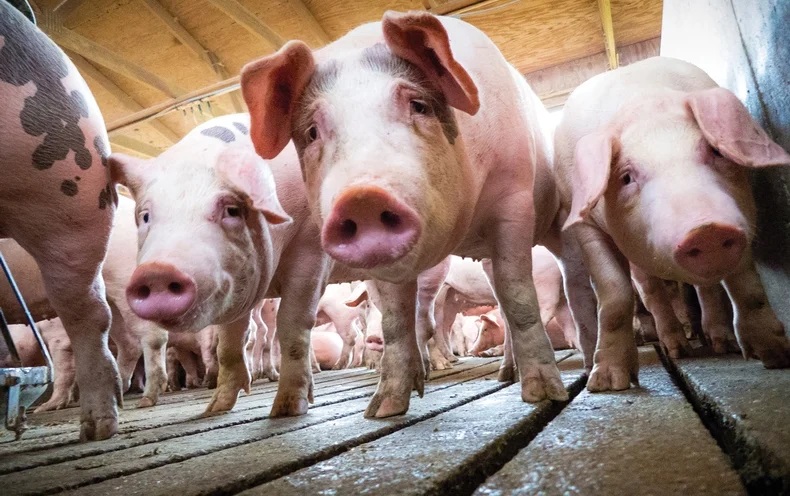Today, most of us take it for granted that via our healthcare systems we have access to effective antibiotics for use in everything from routine surgery to life-saving support treatments in cancer cases. This World Antimicrobial Awareness Week, it is essential to remind ourselves that since 1945, when antibiotics became available for mass use, millions of lives have been saved and life expectancy has increased in many parts of the world.
Unfortunately, these lifesaving treatments are being jeopardised by the systematic use of antibiotics in industrial animal farming. The more we use – and abuse – antibiotics, the more pathogens develop antimicrobial resistance and once-effective treatments stop working. ‘Less is more’ is the best guiding principle for antibiotic use, or else we risk enormous loss of human life.
One example is colistin. It is used as a last-resort treatment in patients with life-threatening conditions that cannot be treated with other antibiotics. As part of the drug class polymyxins, colistin is ranked as the highest priority critically important antimicrobials by the World Health Organisation. However, it is also used in piglets to treat diarrhoea they develop when removed from mothers much earlier than nature intended. This practice ensures that the sow will produce more piglets, as frequently as possible. Scientists have shown a clear link between use of colistin in pigs and antimicrobial resistance.
Are these two uses of colistin equally important? Do we really have the luxury of undermining the efficacy of a life-saving antibiotic just to maximise the number of piglets a sow produces?
Last month, a leading medical journal, The Lancet, reported that in the 53 European region countries, which includes the EU, antimicrobial resistance is associated with over half a million deaths. In 2019, antimicrobial resistance was responsible for more deaths worldwide than malaria and HIV together.
Antibiotic-resistant infections cannot be contained by geographical borders. That is why they are addressed as a global threat by the World Health Organisation, which has recognised antimicrobial resistance as “a leading cause of death around the world, with the highest burdens in low-resource settings.”
This statement helps to put things into perspective. Meat consumption has been low in most countries outside of the EU with the annual global consumption level of around 35 kg per person.
This stands in stark contrast with the EU average of almost 70 kg. With over 60% of all antibiotics given to animals, it is clear that the EU’s high meat consumption is contributing to widening global health inequalities.
The EU has committed to reduce the use of antibiotics in farmed animals and fish produced in aquaculture by 50% by 2030 and has updated its legislation accordingly. This is a good start but not enough to solve the problem.
The EU must now develop comprehensive sustainable food systems that do not rely on continued overuse of antibiotics and other drugs. And it needs to take measures to ensure that consumption of meat and other animal products is reduced, in line with the visions for a healthier and more sustainable Europe set out in the European Green Deal and the Farm to Fork Strategy.
It is also imperative that each member state fully implements the updated EU legislation. Experience shows that farms can almost entirely cut out the use of antibiotics by moving away from factory farming systems where animals are caged or held in close confinement.
Several countries, including Sweden, have drastically decreased their use of antibiotics by improving animal welfare conditions, such as giving each animal more space, raising hygiene levels on farms and letting young animals stay longer with their mothers.
Countries like Finland and Iceland have completely eliminated the use of colistin in farming. It must now be banned when farming animals and the European Commission must include it in its forthcoming revised list of antibiotics reserved for human use only.
Meanwhile, antibiotic resistance continues to claim lives. Tomorrow, we and our loved ones may need an antimicrobial treatment, only to discover – perhaps too late – that it no longer works. Factory farming is putting people’s lives at risk.
For humans, as well as farmed animals, it is time to bring it to an end and move to less intensive farming systems that do not need to rely on the use and abuse of antibiotics. At the same time, antibiotic resistance is another reason why we should adopt changes in our diets by significantly reducing animal products and replacing them with healthy plant-based foods.


